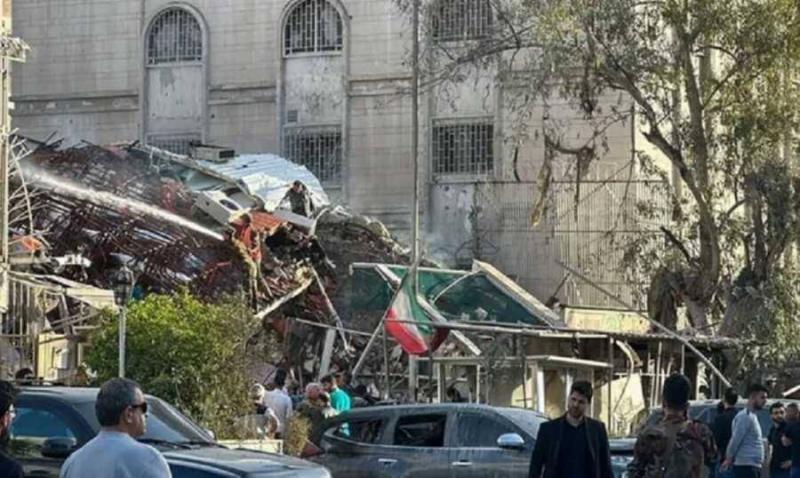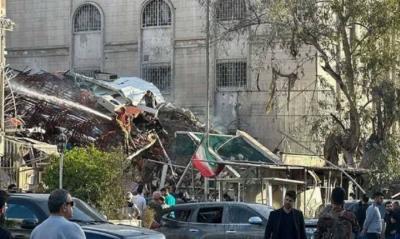Despite the high-stakes threats issued by its officials, Iran seems to have decided to contain the painful blow it received with the death of Major General Mohammad Zahidi, commander of the Quds Force of the Iranian Revolutionary Guard in Syria and Lebanon. However, the Israeli raid that resulted in the death of Zahidi, his deputy, and five other officers while they were in a consulate building adjacent to the Iranian embassy in the Mazzeh district of Damascus has renewed Iranian accusations against Damascus regarding its involvement in assassination operations that have killed around 18 Iranian generals and prominent leaders in just a few months, as reported by Kuwaiti newspaper "Al-Jarida."
A source in the Iranian Supreme National Security Council revealed that Iranian security agencies submitted a report to the council regarding the possibility of Syrian authorities’ involvement in the assassinations of senior Revolutionary Guard leaders in Syria. According to the source, after the assassination of Reza Mousavi in Syria in December 2023, Tehran and Damascus decided to open a joint investigation at the intelligence level regarding potential security breaches that allowed Israel to capture Mousavi, one of the oldest advisers of the Guard in Syria.
However, it later became clear to the Iranians that Syrian intelligence was obstructing the investigation, prompting Tehran to initiate an independent investigation assisted by Hezbollah. The findings indicated that the security breaches and leaks that led to the assassination of Guard leaders in Syria, as well as some Hezbollah personnel in Syria and Lebanon, were politically and securely covered at a high level. It was deemed very unlikely that Syrian President Bashar al-Assad was unaware of this. The second possibility stated that the breach could also involve the Russian leadership in Syria and the Syrian security and military groups cooperating with them, in which case it was also likely that Assad was informed.
The source pointed out that what heightened suspicions in Tehran was that the majority of Hezbollah members who were killed in Lebanon or Syria since October 7 were somehow connected to Syrian and Russian security agencies, and that they were tracked through infiltrating encrypted Russian phones designated for security communications.
Many Iranian officials are now convinced that, after ensuring internal security in the course of the civil war, Damascus is inclined toward reducing Iranian influence. The source added that there are already open channels between Damascus and Tel Aviv, and that the Syrians have decided to utilize Israeli strikes to indirectly pressure Tehran.
It was mentioned that the rift escalated between Assad and Tehran following the Hamas attack on October 7, as the Syrian president firmly rejected all Iranian attempts to persuade him of the necessity of supporting the Palestinian movement for strategic reasons that would strengthen the resistance axis of which Syria is part. Assad expressed that he could never allow any support for a movement that participated in fighting the Syrian army when it was backing the Islamist opposition against the regime.
The source indicated that in the last meeting with Iranian Foreign Minister Hossein Amir-Abdollahian in Damascus last February, Assad was clear that Syria does not seek to enter into a war with Israel, and that when he requested military support from Iran, it was not based on sending Iranian forces to fight Israel from Syrian territory. He stated that he would stand against any attempts to involve Syria in a war that would gain nothing for it. According to the source, Iran perceived Assad's firm stance as a reflection of the Russian position in Syria, suggesting that Assad returned to old game rules wherein Damascus considered itself a rival to Tehran. Currently, Assad's priority appears to be strengthening his power, even if it means sacrificing Hezbollah and cooperating with the United States, possibly even Israel, to expel Iran from Syria, according to "Al-Jarida."




